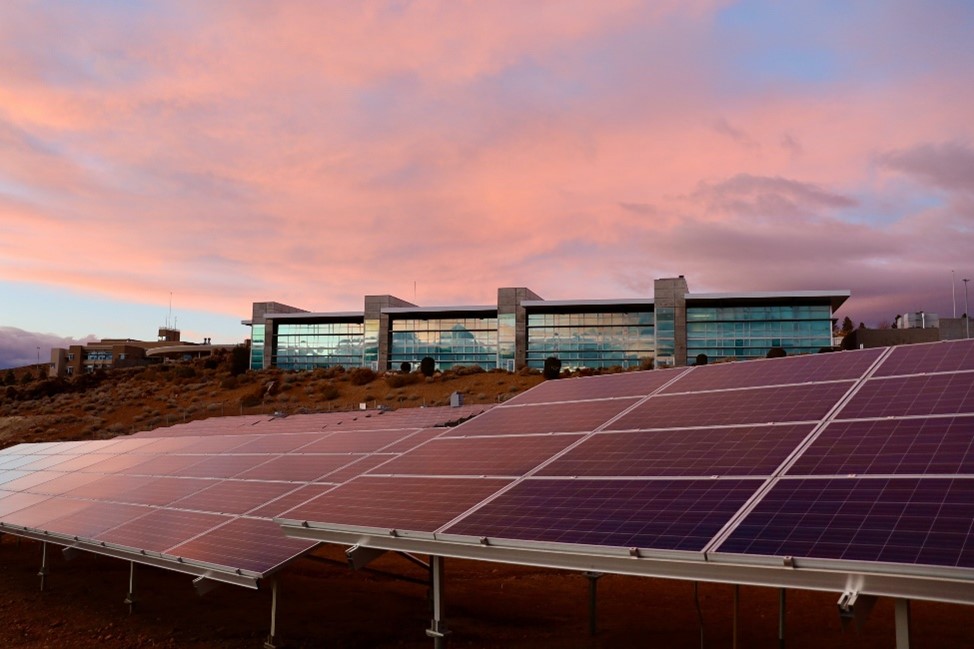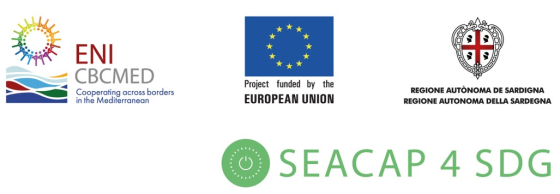SEACAP 4 SDG
Med SE(A)CAP integration through uniform adapted assessment and financing methods, mainly targeting buildings in education and health sectors, for sustainable development goals in a smart society.


Call
ENI CBC MED Programme
Duration
12/2021 – 05/2023
Overall Budget
1,056,411.34 €
Web
https://enicbcmed.eu/projects/seacap-4-sdg
Los países de la cuenca mediterránea se enfrentan a problemas similares de adaptación a la mitigación del cambio climático, en particular en lo que respecta a medidas relacionadas con la eficiencia energética y la energía renovable aplicadas a los edificios públicos. SEACAP considerará los antecedentes de los Planes de Acceso a la Energía Sostenible y Acción Climática (SE(A)CAP) bajo una visión, estrategia y herramienta de evaluación comunes, para contribuir a la lucha contra el cambio climático reduciendo el consumo de energía en los edificios públicos, y promoviendo el desarrollo de los SE(A)CAP a través de un mecanismo financiero innovador y un proceso de capitalización.
SEACAP 4 SDG capitalizará los resultados de los 10 proyectos de referencia seleccionados (SRP), identificando las características que deben ser generalizadas, y adaptando los conocimientos adquiridos para maximizar la eficiencia y la eficacia de las estrategias de rehabilitación energética, adaptadas a las particularidades locales de la zona mediterránea, especialmente la pobreza energética. Los objetivos específicos del proyecto son:
- Desarrollar y testear un conjunto de herramientas, basado en el análisis de los productos y resultados de los proyectos de referencia seleccionados, para apoyar las rehabilitaciones energéticas rentables orientadas al usuario.
- Proporcionar y utilizar un mecanismo financiero innovador basado en la EUCF (European City Facility), para aplicar los SE(A)CAP y el conjunto de herramientas en 9 demostradores en las ciudades seleccionadas, y 4 edificios públicos en diferentes zonas climáticas (Egipto, Jordania, Líbano, Túnez), apoyando 4 rehabilitaciones energéticas rentables en distintas tipologías de edificios (principalmente en edificios del entorno educativo y sanitario).
- Identificar estrategias rentables de rehabilitación energética y uso de los edificios públicos, promoviendo el desarrollo de un uso ecológico (uso tradicional/función social), impactando a corto/largo plazo en los marcos normativos existentes, según los acuerdos sobre objetivos de desarrollo sostenible (ODS).
Estos resultados y productos se implementarán en 9 ciudades del Mediterráneo, seleccionadas mediante una variante de la iniciativa European City Facility. Este mecanismo financiero les apoyará en la adaptación y aplicación de las herramientas y metodologías para su posterior reproducción y capitalización.
Territories surrounding the “Mediterranean lake” face similar specific issues with the adaptation to mitigation of climate change, specifically regarding the energy efficiency and renewable energy measures on public buildings. SEACAP will consider the Sustainable Energy Access and Climate Action Plans (SE(A)CAP) background, under a common vision, strategy and evaluation tool, to contribute to the fight against climate change by reducing energy consumption in public buildings, promoting development of SE(A)CAP through an innovative financial mechanism and a capitalization process.
SEACAP 4 SDG project will thus capitalize on the results of 10 selected reference projects (SRP) identifying characteristics to be generalized, and by adapting gained knowledge to maximize efficiency and effectiveness of energy refurbishment strategies adapted to local Med specificities, notably energy poverty. The project specific objectives are:
- Developing and testing a toolkit, based on the analysis of the outputs and outcomes from the selected reference projects, to support the user-oriented cost-effective energy rehabilitations.
- Providing and using an innovative financial mechanism based on the EUCF (European City Facility) to implement SE(A)CAP and the toolkit in 9 demonstrators in selected cities, and 4 public buildings across climate zones (Egypt, Jordan, Lebanon, Tunisia) supporting 4 cost-effective energy rehabilitations across building types (mainly education and health buildings).
- Identifying cost-effective approaches to energy refurbishment and use of public buildings, promoting the development of their ecological use (traditional use/social role), making short-term/long-term impacts on existing policy frameworks according to sustainable development goals (SDG) agreements
These outputs and outcomes will be implemented in 9 cities around the Mediterranean, selected using a variant of the European City Facility initiative. This financial mechanism will support them in adapting and implementing the tools and methodologies for further replication and capitalization.
Coordinadores – Coordinators
Socios – Partners
- Arab Academy for Science, Technology and Maritime Transport (AASTMT) – Egypt
- University of Patras – Greece
- Naples Agency for Energy and Environment (ANEA) – Italy
- Royal Scientific Society – National Energy Research Center (NERC) – Jordan
- Lebanese Center for Energy Conservation (LCEC) – Lebanon
- Catalonia Institute for Energy Research (IREC) – Spain
- Valencia Institute of Building (IVE) – Spain
- Mediterranean Renewable Energy Centre (MEDREC) – Tunisia